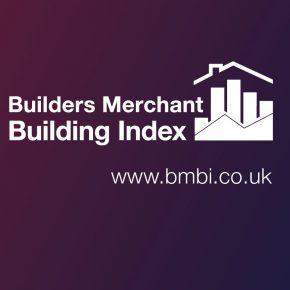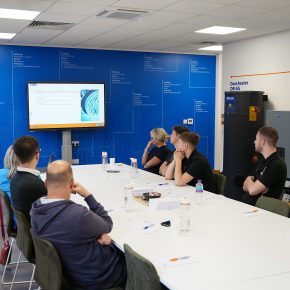
Trade businesses are missing out on online traffic by using terminology consumers don’t use
While building product terminology may seem universal to those within the industry, consumers may well have a different perspective. A new piece of research highlighting discrepancies in search terms reveals why language matters.
Concertina, sliding, folding track, accordion and zig zag: these are all terms used by the public to search for what’s commonly known by the trade as bi-fold doors, according to new findings.
Almost two-thirds of people searching online for this type of door are unaware of its true name, a survey has revealed. This leads to more than 34,000 fruitless searches for the product every month for users who are typing in the alternative terms, which means missed traffic and potential sales for those sellers whose websites fail to use them.
The online survey, by UK doors and windows manufacturer Origin, invited 500 consumers to look at a picture of a bi-fold door and state what type of door they thought it was (see below infographic). Just 36% used the term ‘bi-fold’, while 19% opted for ‘folding track’, 14% each referred to ‘concertina’ and ‘zig zag’, while 8% said it was an ‘accordion’ door.
The research exposes the need for companies to understand the language used to describe their products or services in order to capture their target markets more effectively online, explains Jon Colegate, director of search at Ignition Search, an internet marketing company and Google Partner.
‘This is really a matter of choosing the correct keywords to describe your product,’ he says. ‘The keywords and phrases that are present on your site allow people using a search engine like Google to find your company’s website and products.
‘Despite Google’s recent progress in “semantic” searches, it is still crucial for companies to “speak the same language” as those trawling the internet, so potential customers can find you as quickly and easily as possible.’
As a manufacturer, Origin has learned from its research just how important keyword research is. Chief executive officer and founder Neil Ginger says: ‘It’s clear that there is a lot of scope for companies selling the doors direct to the public to include these other words in their online marketing collateral.’
By following a few simple steps (see the short guide below), you can find out which terms your potential customers are searching for and use this information to improve not only traffic, but the right kind of traffic to your company’s website – the figures will speak for themselves.
8 ways to make sure you’re using the correct keywords
- Jot down an important keyword to your business – something you’d like your company to rank highly for in search results – for example, ‘aluminium windows’ or ‘flooring’.
- Type it into the major search engines and keyword tools to find out the words and phrases that are searched for relating to your keyword.
- Make a list of these words and phrases to get a clearer idea of what potential customers are searching for around your chosen topic.
- You could even repeat steps 1, 2 and 3 to find out what some of these related search terms bring up as their related search terms. This will add to your list and ensure you’re researching your topic more comprehensively.
- Make sure your list contains both short- and long-tail keywords – short-tail means a generic term (like ‘flooring’), while long-tail means a more specific phrase that could indicate an intention to buy (such as ‘what’s the best flooring for my kitchen’).
- Look up which of your competitors are ranking highly for these keywords to get a better idea of which keywords they are trying to rank for with their website content, and which they don’t seem to be trying to rank for – this could signal an opportunity for your business.
- Use Google AdWords or similar to help you cut down your keywords list by seeing which receive the most monthly searches.
- Tailor your website content to incorporate some of these keywords in a way that’s useful and relevant to your potential customers.
Latest news

25th April 2024
BMBI: Value sales in first two months were -3.4% down
The latest Builders Merchant Building Index (BMBI) report shows builders’ merchants’ value sales were down -4.7% in February compared to the same month a year ago.
Posted in Articles, Bathrooms & Toilets, Bathrooms, Bedrooms & Washrooms, Bricks & Blocks, Building Associations & Institutes, Building Industry News, Building Products & Structures, Building Services, Civil Engineering, Concrete, Cement, Admixtures, Drainage, Floors, Hard Landscaping & Walkways, Interior Design & Construction, Interiors, Landscaping, news, Paints, Paints, Coatings & Finishes, Plant, Equipment and Hire, Plumbing, Posts, Publications, Research & Materials Testing, Restoration & Refurbishment, Retrofit & Renovation, Sustainability & Energy Efficiency
24th April 2024
The lowdown on Origin’s New Soho Offering
Origin’s Soho External Door is the first launch in its new generation of products, setting a higher standard for the fenestration industry.
Posted in Access Control & Door Entry Systems, Aluminium Products, Architectural Ironmongery, Articles, Building Industry News, Building Products & Structures, Building Systems, Doors, Innovations & New Products, Posts, Restoration & Refurbishment, Retrofit & Renovation, Security and Fire Protection
24th April 2024
Mitsubishi Electric welcomes new code of conduct for smart appliances
Mitsubishi Electric welcomes a new code of conduct on energy smart appliances which the European Union (EU) announced yesterday at the Hannover Fair in Germany.
Posted in Air Conditioning, Articles, Building Industry Events, Building Industry News, Building Products & Structures, Building Regulations & Accreditations, Building Services, Exhibitions and Conferences, Facility Management & Building Services, Heating Systems, Controls and Management, Heating, Ventilation and Air Conditioning - HVAC, Plumbing, Retrofit & Renovation, Seminars, Sustainability & Energy Efficiency
24th April 2024
Hamworthy Heating expands CIBSE approved CPD modules with new hot water series
Hamworthy Heating, technical experts in commercial heating and hot water products, announce the expansion of its market leading CIBSE approved Continuing Professional Development (CPD) portfolio with the launch of three new learning modules.
Posted in Articles, Building Industry Events, Building Industry News, Building Products & Structures, Building Services, Continuing Professional Development (CPD's), Facility Management & Building Services, Heating Systems, Controls and Management, Heating, Ventilation and Air Conditioning - HVAC, Plumbing, Retrofit & Renovation, Seminars, Training
 Sign up:
Sign up: